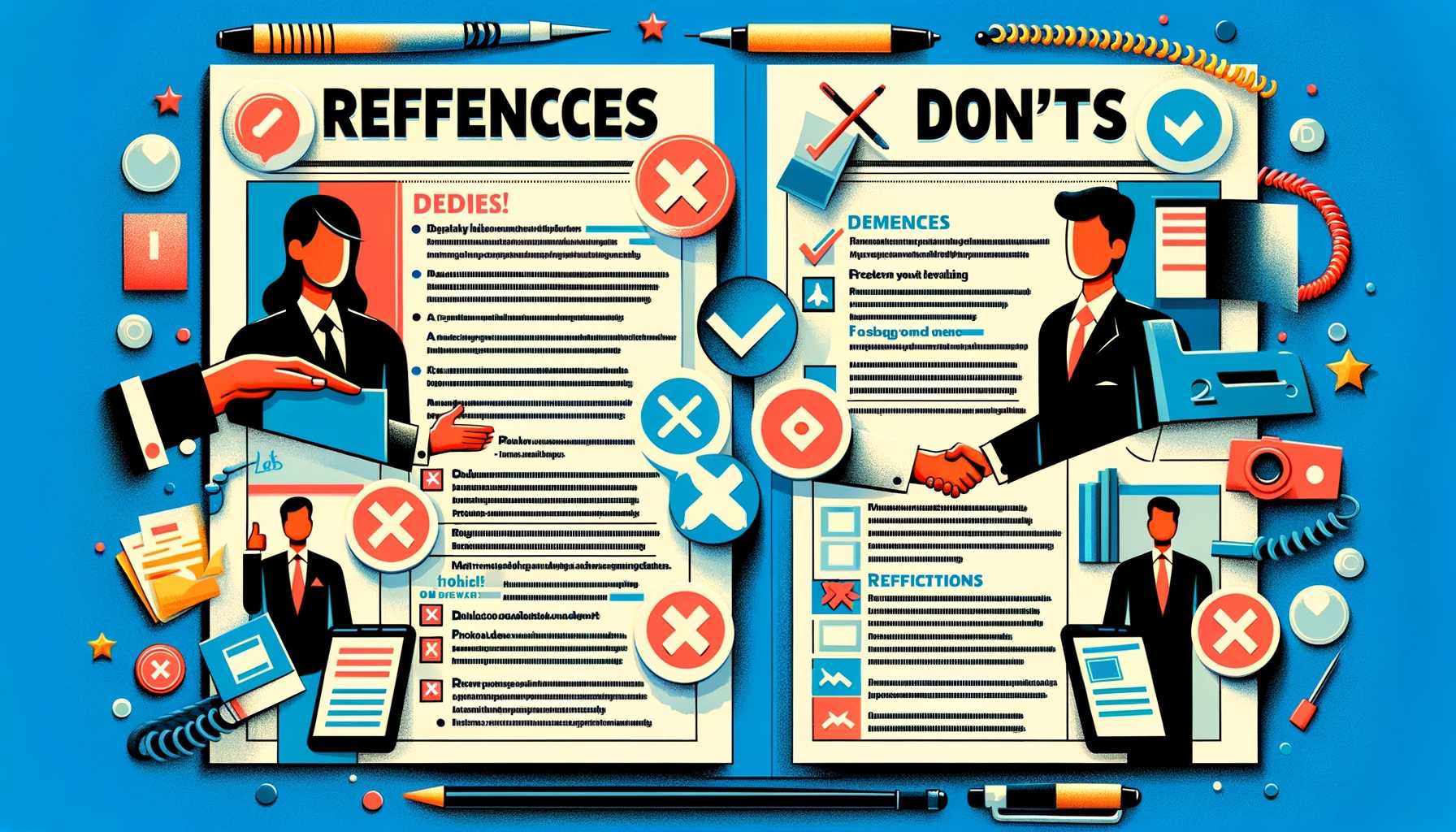The Etiquette of References on Your Resume: Dos and Don'ts for Job Seekers
In the intricate dance of crafting a resume, one often overlooked step is the inclusion of references. While it may seem like a straightforward task, navigating the dos and don'ts of including references on your resume requires finesse and attention to detail. After all, these are the individuals who can vouch for your skills, work ethic, and character – making their endorsement a valuable asset in your job search arsenal. So, let’s dive into the dos and don'ts to ensure you make the most of this critical aspect of your application.
The Dos:
1. Do Ask for Permission: Before listing someone as a reference, always seek their consent. It’s not only a matter of professional courtesy but also ensures they are prepared to speak on your behalf if contacted by a potential employer.
2. Do Choose Wisely: Select references who can speak to your qualifications and work performance. Ideally, these should be former managers, supervisors, or colleagues who are familiar with your work and can provide insightful feedback.
3. Do Provide Contact Information: Include the full name, title, company, email address, and phone number of each reference. Make sure the information is up-to-date and accurate to facilitate easy communication between potential employers and your references.
4. Do Customize Your References: Tailor your list of references to the job you’re applying for. Consider which individuals would be most relevant to the position and highlight their specific skills or experiences that align with the job requirements.
5. Do Follow Up: After submitting your resume, inform your references that they may be contacted and provide them with any additional information they might need to speak confidently about your qualifications.
The Don'ts:
1. Don’t Include References on Your Resume: Contrary to popular belief, it’s not necessary to include references directly on your resume. Instead, create a separate document titled “References” and submit it when requested by the employer or during the later stages of the hiring process.
2. Don’t List Personal References: While it may be tempting to include friends or family members as references, it’s best to stick to professional contacts who can provide relevant insights into your work experience and skills.
3. Don’t Assume Everyone Will Provide a Positive Recommendation: Before listing someone as a reference, ensure they have a favorable opinion of your work. It’s better to have fewer references who can speak positively about you than to include individuals who may offer lukewarm or negative feedback.
4. Don’t Forget to Brief Your References: Give your references a heads-up whenever you’re actively job hunting. Provide them with a copy of your resume, details about the job you’re applying for, and any specific points you’d like them to emphasize when speaking to potential employers.
5. Don’t Neglect to Thank Your References: Regardless of whether you land the job, always express gratitude to your references for their time and support. A simple thank-you note or email goes a long way in maintaining positive relationships and leaving a lasting impression.
Tips for Success:
1. Keep Your References Updated: Regularly review your list of references and ensure their contact information and professional affiliations are current. This will streamline the hiring process and prevent any delays in communication.
2. Be Strategic: Choose references who can speak to different aspects of your skillset and experience. For example, one reference may focus on your leadership abilities, while another can attest to your technical expertise.
3. Be Proactive: Anticipate potential questions or concerns that employers may have and address them with your references beforehand. This demonstrates your proactive approach to the hiring process and reinforces your commitment to securing the position.
4. Be Gracious: Regardless of the outcome, always thank your references for their support and assistance. Building and maintaining positive relationships with your professional network is essential for long-term career success.
5. Be Prepared to Return the Favor: Just as you rely on your references for support during your job search, be willing to reciprocate when called upon. Offer to serve as a reference for former colleagues or acquaintances who may be seeking new opportunities.
In Conclusion:
Navigating the intricacies of including references on your resume requires a delicate balance of professionalism, courtesy, and strategic thinking. By following the dos and don'ts outlined above, you can ensure that your references enhance rather than detract from your job application. Remember, your references are a reflection of your professional reputation – so choose wisely, communicate effectively, and always express gratitude for their support. With these guidelines in mind, you’ll be well-equipped to navigate the job market with confidence and integrity.









